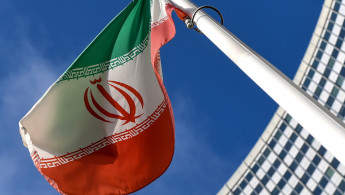'Intense' Iran nuclear talks resume
Indirect talks between Iran and the United States to revive the 2015 Iran nuclear deal have continued as the European Union pushed for further progress.
The sixth round of talks began on Saturday with a meeting between the remaining parties to the deal - Iran, Russia, China, France, Britain, Germany and the European Union. The US joined via a video conference as Tehran refuses in-person meetings with Washington.
Enrique Mora, the talks' chief coordinator and an EU foreign policy official expressed hope that a deal will take place during the current talks, despite others being more cautious in their expectations.
"We are making progress but the negotiations are intense and a number of issues (remain), including on how steps are to be implemented," an EU spokesman said in a statement to reporters, adding that the aim was "to find ways to get very close to a final agreement in the coming days", according to Reuters.
The top Iranian negotiator, Abbas Araqchi, suggested it was unlikely the talks would finish before Iran's upcoming presidential election, due to take place on Friday.
"I don't think we will be able to reach a final conclusion in Vienna this week," Araqchi said, according to Iranian state media.
"Playing for time is in no one's interest," German Foreign Minister Heiko Maas, who is not at the talks, told Reuters, urging all sides to be flexible and pragmatic in their approach.
China's top envoy said the main issue behind reaching a deal was US sanctions. "Our message to them (the United States) is that they should stop shilly-shallying by moving decisively to sanction-lifting," China's ambassador to the UN nuclear watchdog, Wang Qun, told reporters.
On the steps Iran must take to return to compliance with the deal, Wang said: "To a great extent, the major issues have been worked out as a matter of principle, though I think there are some fixes (left)."
Iran denies pursuing nuclear weapons, saying its aims are solely peaceful.





 Follow the Middle East's top stories in English at The New Arab on Google News
Follow the Middle East's top stories in English at The New Arab on Google News
![The UAE is widely suspected of arming the RSF militia [Getty]](/sites/default/files/styles/image_330x185/public/2024-11/GettyImages-472529908.jpg?h=69f2b9d0&itok=Yauw3YTG)
![Netanyahu furiously denounced the ICC [Getty]](/sites/default/files/styles/image_330x185/public/2024-11/GettyImages-2169352575.jpg?h=199d8c1f&itok=-vRiruf5)
![Both Hamas and the Palestinian Authority welcomed the ICC arrest warrants [Getty]](/sites/default/files/styles/image_330x185/public/2024-11/GettyImages-2178351173.jpg?h=199d8c1f&itok=TV858iVg)